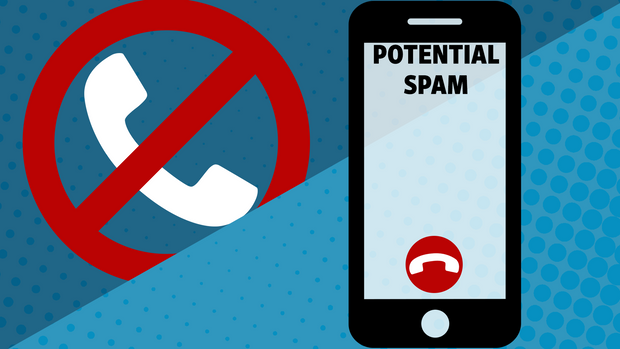Alert Spam Call 18774530539, 1-877-453-0539, 8774530539, 18774530539, 7786121000, 18002401627, 6043421000 in Canada
Introduction
Spam calls have become an incessant annoyance in our modern lives. Whether it’s a fraudulent attempt to steal personal information or an automated telemarketing message, spam calls can be disruptive and potentially dangerous. Canada is not immune to this global problem, with millions of Canadians receiving spam calls regularly. In this article, we will explore the world of spam calls, their impact, and most importantly, how to protect yourself from falling victim to these scams.
Understanding Spam Calls
-
Definition of Spam Calls
Spam calls, also known as nuisance or unsolicited calls, are unwanted and often illegal phone calls made with the intent of defrauding, deceiving, or marketing to the recipient without their consent.
-
How Spam Calls Work
Spam callers use various techniques to obtain phone numbers, such as scraping websites, purchasing lists, or randomly generating numbers. Once they have a list of phone numbers, they use auto-dialing technology to make hundreds or thousands of calls in a short period.
-
Common Spam Call Tactics
Spam callers employ several tactics to trick their victims into providing sensitive information or falling for their scams. Some common tactics include impersonating government agencies, financial institutions, or well-known companies.
The Impact of Spam Calls on Canadians
-
Annoyance and Disruption
The constant ringing of phones with spam calls can be a major annoyance, disrupting daily routines and causing stress and frustration.
-
Financial Scams
One of the most significant concerns with spam calls is the risk of financial scams. Fraudsters often pose as representatives of banks or government agencies, attempting to obtain personal information or money from unsuspecting victims.
-
Identity Theft Concerns
Spam callers may also try to gather personal information to use in identity theft schemes, putting individuals at risk of financial loss and damaged credit.
Legal Framework to Combat Spam Calls in Canada
-
The Canadian Radio-television and Telecommunications Commission (CRTC)
The CRTC is the regulatory body responsible for enforcing rules and regulations related to spam calls. They have implemented measures to reduce spam calls and protect consumers.
-
The National Do Not Call List (DNCL)
The DNCL is a free service that allows Canadians to register their phone numbers to reduce telemarketing calls. Telemarketers are required to consult the DNCL and refrain from calling registered numbers.
-
Canadian Anti-Fraud Centre (CAFC)
The CAFC is Canada’s central agency for receiving complaints and information regarding fraud, including spam calls. Reporting spam calls to the CAFC helps track and combat fraudulent activities.
Tips to Protect Yourself from Spam Calls
-
Enable Caller ID
Ensure that your phone’s caller ID feature is activated. It helps you identify incoming calls and avoid answering spam numbers.
-
Be Cautious with Personal Information
Never provide personal or financial information to unknown callers, especially if they claim to be from a government agency or financial institution.
-
Avoid Answering Unknown Numbers
If you receive a call from an unknown number, let it go to voicemail. Legitimate callers will leave a message.
-
Use Call Blocking Apps
Install call-blocking apps on your smartphone that can automatically detect and block known spam numbers.
-
Report Spam Calls
Report spam calls to your mobile carrier, the CRTC, or the CAFC to contribute to their efforts in combating spam.
Staying Safe: Recognizing and Avoiding Spam Call Scams
-
Canada Revenue Agency (CRA) Scam
One of the prevalent scams in Canada is the CRA scam, where fraudsters pose as CRA agents to extort money from individuals by claiming fake tax issues.
-
Bank and Credit Card Scams
In these scams, fraudsters impersonate bank officials or credit card companies to gain access to financial information.
-
Tech Support Scams
Fraudsters pretend to be tech support personnel and claim that your computer has a virus, asking for payment to fix the nonexistent issue.
Spam Calls and Your Mobile Phone
-
Mobile Carriers Initiatives
Many mobile carriers are actively implementing measures to identify and block spam calls directly from their networks.
-
Third-Party Apps to Stop Spam Calls
Several third-party apps are available that can effectively block spam calls based on community-driven databases.
Dealing with Robocalls
-
What are Robocalls?
Robocalls are automated phone calls made using computerized auto-dialing systems.
-
Robocall Blocking Technologies
Various technologies are designed to detect and block robocalls, providing an additional layer of protection against spam.
Conclusion
Spam calls are a persistent problem that can lead to annoyance, financial loss, and identity theft. By understanding the tactics used by spam callers and implementing preventative measures, Canadians can protect themselves from falling victim to these scams. Remember to report spam calls, utilize call-blocking apps, and stay cautious with personal information. By staying vigilant, we can collectively reduce the prevalence of spam calls and create a safer phone environment for everyone.
FAQs
- How can I stop receiving spam calls?
Register with the national Do Not Call list and use call-blocking apps on your smartphone.
- Can spam calls lead to identity theft?
Yes, spam calls can lead to identity theft if scammers obtain and misuse your personal information.
- Are all unsolicited calls spam?
Not all unsolicited calls are spam, but it’s essential to be cautious and verify the caller’s legitimacy.
- Is it safe to answer unknown numbers?
It’s best to be cautious when answering unknown numbers, as some spam calls may attempt to deceive you


